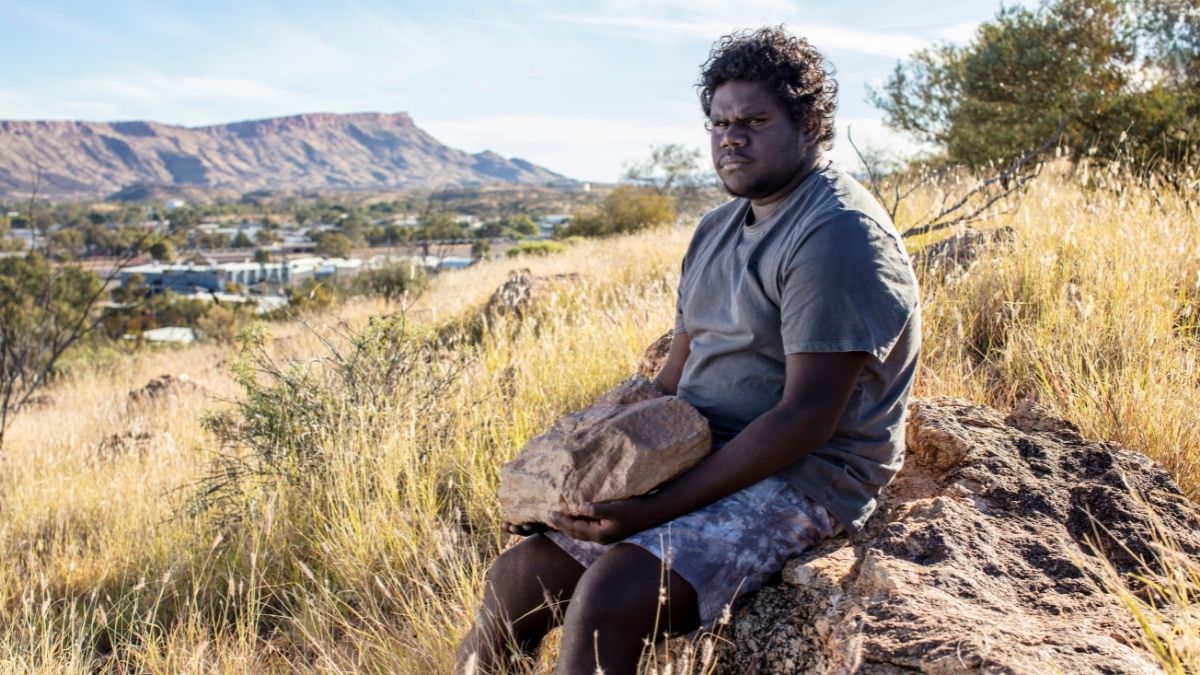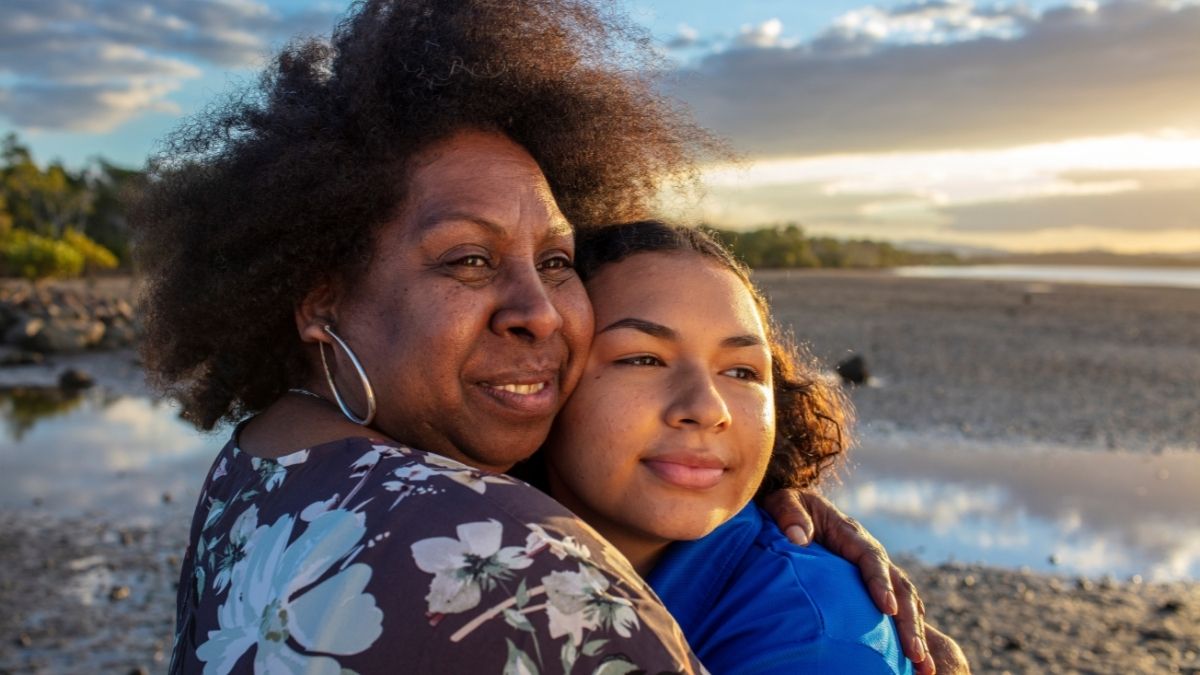What is racism?
Racism can look different for everyone, and sometimes it can be hard to put into words why what happened was wrong and hurtful.
Racism is more than just acts of violence or harassment against a person or a group of people. It can take many forms and can happen in a variety of situations and places.
It usually includes prejudice, discrimination, and hatred against a person or a community because of their racial background, ethnicity, or nationality. This could show up in an obvious form, such as verbal abuse or being excluded from activities. Racism can also be experienced systemically and institutionally.
But racism is not always obvious, and there are many subtle forms of racism, such as racial microaggressions, which is the everyday discrimination that First Nations young people and young people from a migrant or refugee background experience in their daily lives. This can include comments such as ‘Where are you really from?’, or ‘You speak really good English’. The cumulative impact of hearing and witnessing these acts can be hard to cope with.
Racism and intergenerational trauma
An added factor is intergenerational trauma, which is when people experience disadvantage because the effects of racism in the past may cause deep trauma that affects current generations. For example, children or grandchildren of the Stolen Generation may be impacted by that despite not having been removed from their families themselves.
Find more definitions around racism.
Who does racism affect?
A recent study by the Australian Institute of Family Studies (AIFS, 2022), which interviewed 10,000 young people between the ages of 12 and 17, found 34% of First Nations young people and 31% of young people who spoke a language other than English at home reported racial discrimination.
The eSafety commissioner has also found that First Nations young people are almost three times more likely than the national average to have had offensive things said to them online because of their race, ethnicity, gender, nationality, sexual orientation, religion, age or disability.
While there will always be different viewpoints within families, communities and the broader Australian society, it is important to have respectful and open conversations and that people aren’t subjected to acts of violence or racism.
The impacts of racism
It is our right as First Nations people to live free of racism, vilification and discrimination.
Racism can make you feel unvalued, unwelcome, and isolated, and feel shame about your identity instead of pride. These feelings can have a significant impact on social and emotional wellbeing. First Nations people experience a high rate of mental health problems, such as depression and anxiety, and we want our young people to feel safe to seek help before they experience significant mental health issues.
Racism also affects opportunities in society, for example, discrimination can contribute to unemployment, which affects opportunities for housing, transport, medical services, and so on.
What you can do if you experience racism
There are times when we experience racism, and notice ourselves feeling frozen, lost for words, scared and even angry. These are all normal responses, and it can be hard to know how and when to react in a safe way, to stand up for yourself or even people around you.
Racism can look different for everyone, and it can be hard to put into words sometimes why what happened was wrong and hurtful.
There are no excuses for racism, and it is your right to live free of racism and discrimination and there are steps you can take if you experience racism in person or online.
Before taking action, it is good to:
- Get free and confidential legal advice
- Report the harmful content to the site, game, or app used to send, post or share it.9
- Try to collect evidence, e.g., take screenshots, or print messages, posts or emails.
- Try not to retaliate by saying something hurtful back
- Block the other user, and if harm is happening on a social media platform, report their account to the platform
Youth Law Australia: you can get free and confidential legal advice about your situation and all of your options. For free legal assistance, you can contact Youth Law Australia 24/7 on their website. Youth Law Australia helps children and young people aged 24 or under.
You can also seek advice and support from the:
- eSafety Commissioner
- State/territory discrimination bodies
- Australian Human Rights Commission
- Police (if you are in immediate danger)
How to look after your Social and Emotional Wellbeing
It is important to look after yourself and focus on strong spirit, strong culture, strong body, strong identity, strong mind and strong relationships. Here are some ways we can be our strong and deadliest selves.
Strong Mind
Some ways we can keep a strong mind are to eat well, sleep well, hang out with friends and family, and explore things that challenge or interest us. Not only is it important to have a strong mind, we need to rest our mind as well. To rest your mind, you can do things like, meditate, sit out on Country or do some gentle exercise or Yoga.
Having a strong mind is important because it helps us make good choices, process information, and stay resilient.
Strong relationships
Our people have always sought strength from connection to community and family. Relationships are important and it's important to take care of them. They give us support, guidance, strength, love, and energy. Our relationships can be with friends, family, biological or chosen and can extend out to our totems and to country. Strong relationships should strengthen you. As important as it is to have strong relationships it's also important and ok to take a break from relationships that may be taking away from our strength.
Strong culture
To stay grounded and escape the overwhelm we need to stay connected to culture. Make sure you make time to connect with family and elders, share stories, Sing, dance or paint and visit country.
You should be proud of your identity, your culture, your spirit and your mind.
Culture keeps us strong, don’t let these conversations, racism or negativity at this time take that strength away from us.
What can you do for extra support?
headspace services
- You can use access headspace online and phone support.
- Find a headspace centre
Community resources
- Australian Human Rights Commission: Know your rights: Racial discrimination and vilification
- Australian Government: Help Stop Racism
- eSafety Commissioner: First Nations: Online hate and abuse
- 13YARN
- Australian Indigenous HealthInfoNet
- Healing Foundation: Community self-care resources
- Youth Law Australia
- Wise Practices: A Life Promotion Toolkit by Indigenous Youth
Get professional support
If you feel you need help there are a range of ways we can support you.




